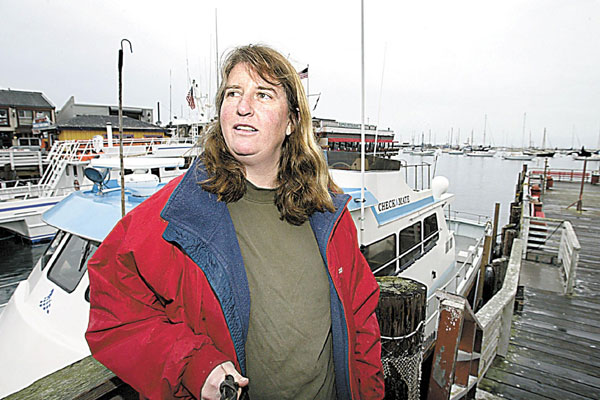Nancy Black is a marine biologist who has dedicated her life to the preservation and study of whales. National Geographic and PBS have featured her work. Yet, the federal government is now prosecuting her—persecuting her would not be too strong a term—for her efforts to learn more about whales.
Why? Well, it appears that the federal government is going after her like Inspector Javert went after Jean Valjean simply to justify the time and effort the National Oceanic and Atmospheric Administration (NOAA) and the DOJ have already spent on the case.
A recent column in The Washington Post highlights the problem. Nancy Black’s tragedy began when she questioned the conduct of her colleagues, who were whistling at whales in an attempt to keep them near their boat. In response, a member of the crew called NOAA to see if whistling constituted harassment of whales, which is a federal crime.
To cooperate with the investigation that ensued, Nancy voluntarily gave a video recording of the event to NOAA investigators. Nancy had edited the tape to cut out time where there was no whistling. She thought NOAA investigators were only interested in the potential harassment. Regrettably, she was wrong.
Months later, NOAA agents burst into her home, demanding the unedited tape. Nancy gave NOAA the unedited tapes, but she was later charged with altering evidence and making false statements in violation of federal law for the original edited recordings. These could land Nancy in prison for up to 20 years.
Why would NOAA prosecute a woman who has dedicated her life to the very cause it promotes? Perhaps for NOAA, these types of prosecutions are a battle for survival.
NOAA has a history of egregious conduct in investigating and prosecuting crime. In the last 14 years, the Office of the Inspector General (OIG) has reprimanded NOAA seven times. In 2010, OIG issued a report that detailed 53 separate cases where misconduct had been alleged against NOAA in the way that it handled criminal investigations and prosecutions.
On numerous occasions, including a 2009 report, the OIG has found that NOAA had way too many criminal investigators. Criminal investigators made up approximately 90 percent of NOAA’s Office of Legal Enforcement, while criminal prosecutions made up only 2 percent of violations that NOAA has handled. The OIG found that the principal motivating factor for the composition of the Office of Legal Enforcement was that criminal investigators are paid much better than other Office of Legal Enforcement personnel.
The NOAA has repeatedly asked Congress to create more criminal laws for it to enforce. (Apparently, NOAA is unfamiliar with the Parable of the Talents.) Instead of giving more authority to NOAA, Congress should reassess the authority it already has.
Congress’s questioning should include the following:
- Does NOAA need the authority to investigate and prosecute criminal violations?
- Should the laws that NOAA enforces carry criminal penalties?
- Is the FBI more capable of handling these situations?
- Why should someone like Nancy Black be charged criminally?
- Is society safer with Nancy in prison?
- Are whales safer with Nancy in prison?
If the NOAA wants to dispute these questions, it should be willing to defend its actions in front of Congress. While OIG can write reports and give recommendations, only Congress can hit them where it hurts—the wallet. Most likely, NOAA is not the only small government agency abusing its power. Maybe this is a good opportunity for Congress to review all of the smaller agencies with criminal investigative power.



























